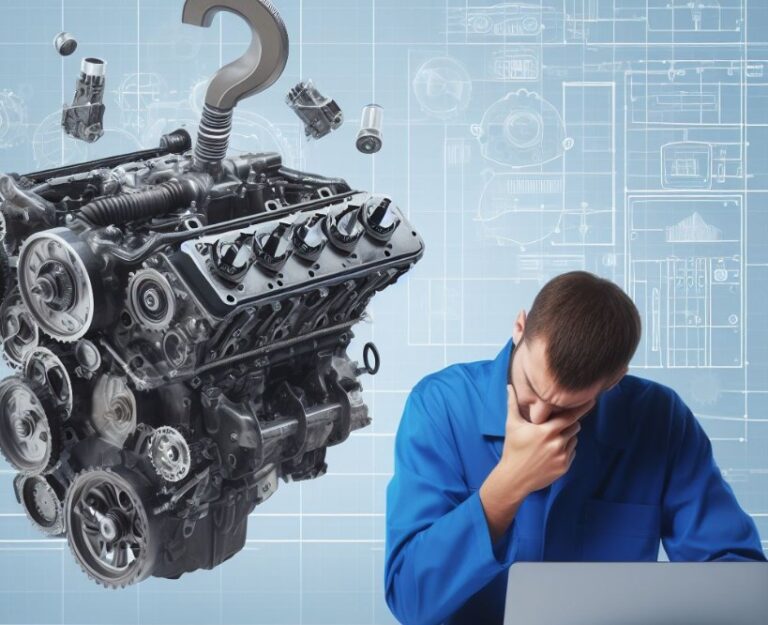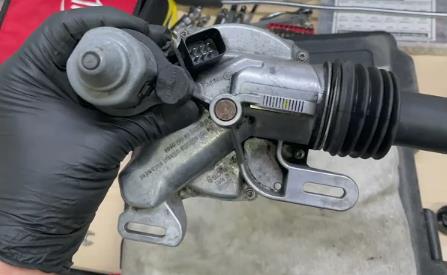Are Turbo Engines Louder? How Do Car Turbos Work?
The first purpose of turbochargers, or turbos, was for use in aircraft. They first appeared in automobiles in the 1960s but gained popularity in the 1980s. Today, the vast majority of gasoline and diesel engines have turbochargers, but what is a turbo? Are Turbo Engines Louder? This how-to manual contains the information.
Are Turbo Engines Louder?
Exhaust pipes on turbocharged vehicles are also quieter. It is less loud than a non-turbo car because the turbo effectively reduces the gas flow from the exhaust.

How Do Car Turbos Work?
Internal combustion is the basis for an automobile engine’s operation, with several small controlled explosions inside each cylinder.
These explosions require heat, fuel, and air; by increasing any of these three components, you can enlarge the explosion and boost its power output.
Larger capacity engines (such as 6.2-liter) can fit more fuel to burn during each combustion cycle, providing more power.
However, a large-capacity engine uses more fuel under all conditions, resulting in higher gasoline or diesel costs.

A turbocharger works by introducing more air into the engine, increasing the amount of fuel injected at a proportional rate, strengthening the combustion, and generating more power.
The beauty of a turbocharger is that it is not always operating; typically, it is only turned on over a specific engine speed and turns on harder as engine rpm rises.
This implies that if you gently press the accelerator, the turbo will either not engage or only activate briefly.
This makes it easier to obtain good efficiency than you would with a large-capacity engine that constantly drains a lot of fuel.
The fact that waste exhaust gases fuel turbos is another clever characteristic, so they do not require additional engine power to turn.
When waste gases leave an engine under high pressure, they propel a turbo’s fan-like blades to a very high speed (about 280,000 revolutions per minute), pulling in fresh air and forcing it into the engine.
The extra power was given in a single, enormous lump by early turbos, quite rudimentary machines. The name “turbo” quickly acquired its cachet, describing everything from vacuum cleaners to hair dryers. Saab and Porsche were two companies that contributed significantly to the popularization of turbochargers.
Modern turbos are equipped with sophisticated technologies that can precisely control the flow of gases through them, resulting in more ‘linear’ power delivery and higher efficiency.
An intercooler and an oil cooler are frequently used in conjunction with turbos because of the extremely high pressures and extreme temperatures they operate at.
The intercooler cools the turbo’s hot exhaust air, and the oil cooler prevents the lubricant from overheating.
What Are The Drawbacks Of A Turbo?
‘Turbo lag’ is a word that’s frequently used to describe the period between applying the brakes and the turbo delivering its additional power.
This is merely a result of how long the exhaust gases take to enter the turbo and begin spinning the turbine. Large turbine blades take longer to reach full speed. Therefore, a large turbo often magnifies the effect.
There are numerous techniques for modern turbos to lessen lag. While automobile manufacturers have also developed electric motors that spin the turbine before gases even reach it, some engines include two additional turbos of increasing size that function at various speeds.
While some turbo lag is inevitable, many engines nowadays have so little of it that it’s hard to notice.

Another potential problem area is turbos. They can and often do because some engines are especially vulnerable to turbo problems.
The telltale signs include a lack of power and thick, white exhaust smoke. The usual culprits are abuse, neglect, and high mileage, but there shouldn’t be any issues if the car is properly maintained.
How To Make Turbo Whistle Louder?
Turbo whistles are a fantastic way to distinguish your car from the competition. They not only sound forceful, but they also make your automobile seem awesome.
Here are some suggestions to help you if you’re seeking ways to increase the volume of your turbo whistle.
First and foremost, make sure your turbocharger is in good working order. The turbo whistle may be significantly quieter than it ought to be if the housing has any leaks or cracks.
Before proceeding to the following step, ensure everything is well sealed.
Then, examine your exhaust system. The sound of your turbo whistle might be muffled if you have a catalytic converter or muffler fitted. If possible, try taking these parts out to see whether it helps.
Sometimes, switching them out for higher-flow models can also help your turbo whistle sound louder. Additionally, installing an aftermarket blow-off valve is something to think about.
When you remove the gas pedal, the pressure will be released, making additional noise and enhancing performance. Please don’t overdo it with this modification; always put safety first!
Turbo Whistle Getting Louder
There are a few potential causes if you’ve observed that your turbo whistle is getting louder. First, the exhaust system’s noise-canceling capabilities may have declined.
A system leak or muffler damage can cause this. Another possibility is that the waste gate is stuck open, resulting in higher boost pressure and more turbocharger noise.
It’s better to have your car diagnosed by a mechanic if you need clarification on what’s wrong.
Why Is My Turbo Whistling Loud?
You’re not the only one who has ever questioned why your turbo whistles so loudly. This is a frequently asked question at Turbo Lab. Although there are several potential causes, your turbo needs to be cleaned.
Turbochargers may accumulate oil, soot, and other debris over time. As a result, the airflow may be restricted, and the turbine may operate less effectively.
You can experience a decrease in performance and an increase in engine noise, especially a high-pitched “whistling” noise.
Fortunately, cleaning your turbo requires simple equipment and supplies and can be completed at home. We’ll take you step-by-step through the procedure so you can quickly get back on the road (and enjoy peaceful trips)!
Is It Normal For My Turbo To Whistle?
Yes, the whistle from your turbo is normal. This is so that the turbocharger can drive compressed air into the engine.
The turbine blades spin quickly due to the compressed air’s high pressure, which forces the compressor wheel to draw in additional air. As the air flows past the turbine blades, it whistles.
What Does A Failing Turbo Sound Like?
Numerous sounds could be heard if your turbo is failing. These can sound like hammering, rattling, or even hissing noises.
If you want to avoid further damage, get your turbo inspected by a mechanic as soon as you suspect a problem.
How Long Will A Whistling Turbo Last?
You do not need to freak out if you hear a whistling sound from the turbocharger in your car. This condition can happen to any turbocharged car and is rather prevalent.
The good news is that it’s typically a minor problem that can be resolved. A worn-out or loose compressor wheel is the most likely culprit of a whistling turbo.
This results in improper compression of the air passing through the turbocharger, which produces a recognizable whistle sound. The affected component can typically be replaced to address this issue.
You do not need to freak out if you hear a whistling sound from the turbocharger in your car. This condition can happen to any turbocharged car and is rather prevalent.
The good news is that it’s typically a minor problem that can be resolved. A worn-out or loose compressor wheel is the most likely culprit of a whistling turbo.
This results in improper compression of the air passing through the turbocharger, which produces a recognizable whistle sound. The affected component can typically be replaced to address this issue.
Conclusion
Turbo engines are not louder. On many autos, turbo whistles are common and can be quite audible. Your turbo may be whistling loudly for a few reasons. One explanation would be that something, like a buildup of carbon or oil, is obstructing the exhaust stream.
The turbine blades may also need to be replaced if they are damaged. Taking your automobile to a professional to get it looked as if you hear a loud turbo whistle is advised.
People Also Ask
Does the turbo engine make more noise?
One of the turbocharger’s surprising benefits is that it quietens the engine by masking the air intake sound. However, a loud, whining noise that sounds like a police siren or a dentist’s drill could indicate that your turbo is failing.
Does turbo affect the sound?
Identical to how it affects the intake, this causes the exhaust to sound flatter and more sinusoidal, which most people would agree makes it less thrilling than an NA engine of identical design. As a side effect, the turbo also frequently results in quieter exhaust.
Why are turbo engines quiet?
One of the most unexpected advantages of a turbocharged engine is that the engine noise becomes quieter and smoother due to the air in a turbocharged engine being filtered via more pipes and parts.
What causes a turbo to be loud?
The turbocharger will begin to make noises if it receives insufficient air. For instance, the intake resistance significantly rises if the air filter is not periodically checked and replaced.

Welcome to the exhilarating world of Matt Rex, a professional car racer turned renowned vehicle enthusiast. Immerse yourself in his captivating blog as he shares heart-pounding adventures, expert reviews, and valuable insights on cars, trucks, jets, and more. Fuel your passion for speed and discover the beauty of vehicles through Matt’s engaging stories and meticulous expertise. Join the ever-growing community of enthusiasts who find inspiration and expert advice in Matt Rex’s blog—a digital hub where the thrill of speed meets the pursuit of knowledge.




![Can You Use 15w40 Diesel Oil In A Gas Engine? [Answered]](https://www.turbochaos.com/wp-content/uploads/2023/09/Can-You-Use-15w40-Diesel-Oil-In-A-Gas-Engine.jpg)
![Mercedes Benz MBE 4000 Engine Problems [Explained]](https://www.turbochaos.com/wp-content/uploads/2024/01/Mercedes-Benz-MBE-4000-Engine-Problems-768x651.jpg)

